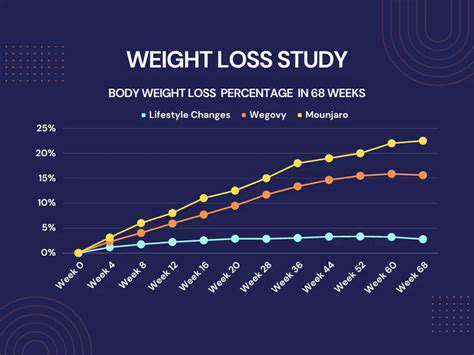Guide to Managing Migraines
Identifying Your Migraine Triggers

Understanding the Root Causes
Identifying your migraine triggers is crucial for effective management and prevention. Migraines are complex, and their causes can vary significantly from person to person. Pinpointing these triggers allows you to develop personalized strategies to minimize their impact on your life. Understanding your triggers can lead to a significant reduction in migraine frequency and intensity.
Many factors can contribute, including environmental stimuli, dietary choices, stress levels, and even changes in sleep patterns. The key is to meticulously document and analyze your experiences to uncover any recurring patterns or potential connections.
Dietary Factors
Certain foods and drinks can act as potent migraine triggers. Processed foods, aged cheeses, chocolate, and alcohol are common culprits. Pay close attention to how your body reacts to different dietary components. Keeping a detailed food journal can help you identify specific foods that might be contributing to your migraines. Tracking your meals and beverages alongside your migraine occurrences can offer valuable insights.
Environmental Factors
Environmental factors play a significant role in triggering migraines. Fluctuations in barometric pressure, bright or flickering lights, strong smells, and changes in temperature can all be potential triggers. Be observant of any patterns that might emerge between environmental changes and your migraine episodes. By recognizing these connections, you can proactively mitigate environmental stressors.
Noticing whether migraines tend to occur during specific weather conditions or in certain environments can also be helpful in understanding your triggers.
Stress and Lifestyle
Stress is a well-known migraine trigger. High-pressure situations, deadlines, and emotional distress can all contribute to migraine attacks. Stress management techniques, such as mindfulness, yoga, or meditation, can be valuable tools in preventing migraine episodes related to stress. Prioritizing sleep, maintaining a healthy diet, and engaging in regular physical activity can also help reduce stress levels.
Changes in your daily routine, such as travel or shifts in work schedules, can also significantly impact your stress levels and thereby increase the likelihood of a migraine.
Sleep Disturbances
Sleep deprivation and irregular sleep patterns are often linked to migraines. Lack of sufficient sleep or experiencing inconsistent sleep schedules can disrupt the body's natural rhythms, increasing the risk of migraines. Ensuring a consistent sleep schedule and prioritizing adequate sleep are essential for migraine prevention.
Paying attention to your sleep patterns and any changes in your sleep quality can be helpful in pinpointing sleep as a potential migraine trigger. Maintaining a relaxing bedtime routine and creating a conducive sleep environment can be beneficial in promoting better sleep and reducing migraine frequency.
Hormonal Fluctuations
Hormonal changes, especially in women, can trigger migraines. Menstruation, pregnancy, and menopause can all be associated with variations in hormone levels, which can impact migraine susceptibility. Monitoring your menstrual cycle and noting any patterns between hormonal fluctuations and migraines can be beneficial. Consult a healthcare professional for personalized guidance on managing migraines related to hormonal changes.
Paying attention to how your body responds to these hormonal shifts can be crucial in recognizing potential triggers and developing effective coping mechanisms.

Seeking Professional Medical Advice

Understanding the Importance of Seeking Professional Medical Advice
Seeking professional medical advice is crucial for maintaining good health and well-being. It's a proactive approach that can significantly impact your health outcomes. Ignoring symptoms or delaying necessary medical attention can have serious consequences, potentially leading to complications and exacerbating underlying conditions. Taking the initiative to consult with healthcare professionals allows for early diagnosis, personalized treatment plans, and better management of any health concerns.
A doctor can provide accurate diagnoses based on thorough examinations and tests. This allows for effective interventions and treatment strategies tailored to your specific needs. Proactive health management, through regular check-ups and consultations, empowers individuals to make informed decisions about their health and well-being.
Recognizing When Professional Help is Needed
Recognizing when to seek professional medical advice is a key aspect of proactive health management. Pay attention to any unusual or persistent changes in your physical or mental state. Persistent pain, unexplained fatigue, or changes in bowel or bladder habits warrant a visit to a healthcare professional.
Also, if you experience sudden onset of severe pain, difficulty breathing, or any other symptoms that cause significant discomfort or distress, do not hesitate to seek immediate medical attention. Prompt intervention is essential to prevent serious complications. This includes situations with concerns about serious injuries or illnesses.
Different Types of Medical Professionals
There are various medical professionals to choose from, each with their specialized expertise. Primary care physicians are often the first point of contact for general health concerns. They can provide preventive care, diagnose common illnesses, and refer you to specialists if necessary.
Specialists, such as cardiologists, neurologists, or dermatologists, have advanced training and expertise in specific areas of medicine. They provide specialized care for complex conditions requiring a higher level of medical knowledge. Choosing the right specialist is important for effective and precise treatment.
The Benefits of Early Diagnosis
Early diagnosis of health conditions is crucial for successful treatment and improved outcomes. Many illnesses respond best to treatment when diagnosed early. Catching a problem in its early stages often means less aggressive treatment is needed, and the chances of a full recovery are much greater.
Early intervention also minimizes the risk of complications and long-term health problems. Early diagnosis is a crucial step in preventing the worsening of health conditions. The sooner a problem is identified, the sooner treatment can begin, and the more likely a positive outcome is.
Effective Communication with Healthcare Providers
Effective communication with healthcare providers is essential for receiving the best possible care. Clearly describe your symptoms, medical history, and any concerns you may have.
Be prepared to answer questions thoroughly and accurately. Providing detailed information allows healthcare professionals to make informed decisions about your care. Active listening and open communication are vital in establishing a strong doctor-patient relationship, fostering trust and facilitating effective treatment.
Making Informed Decisions About Your Health
Understanding your health condition and treatment options empowers you to make informed decisions about your care. Ask questions about your diagnosis, treatment plan, and potential side effects. Being an active participant in your health journey helps you feel more involved and in control. This empowers you to take responsibility for your health and well-being.
Researching different treatment options and seeking second opinions can also help you make well-informed choices aligned with your values and preferences. Understanding the potential risks and benefits of different courses of action is critical in decision-making.
Read more about Guide to Managing Migraines
Hot Recommendations
-
*Guide to Managing Gout Through Diet
-
*Best Habits for Financial Well being
-
*How to Build a Routine for Better Mental Health
-
*How to Eat Healthy on a Budget [Tips & Meal Ideas]
-
*Guide to Practicing Self Acceptance
-
*How to Incorporate More Movement Into Your Day
-
*Guide to Managing Chronic Pain Naturally
-
*Guide to Building a Reading Habit for Well being
-
*Top 5 Weight Loss Supplements That Actually Work
-
*Best Exercises for Postpartum Recovery [Beyond Abdominal Work]

![Best Food Sources for Iron [Vegetarian and Non Vegetarian]](/static/images/26/2025-05/BeyondFood3ALifestyleConsiderations.jpg)








